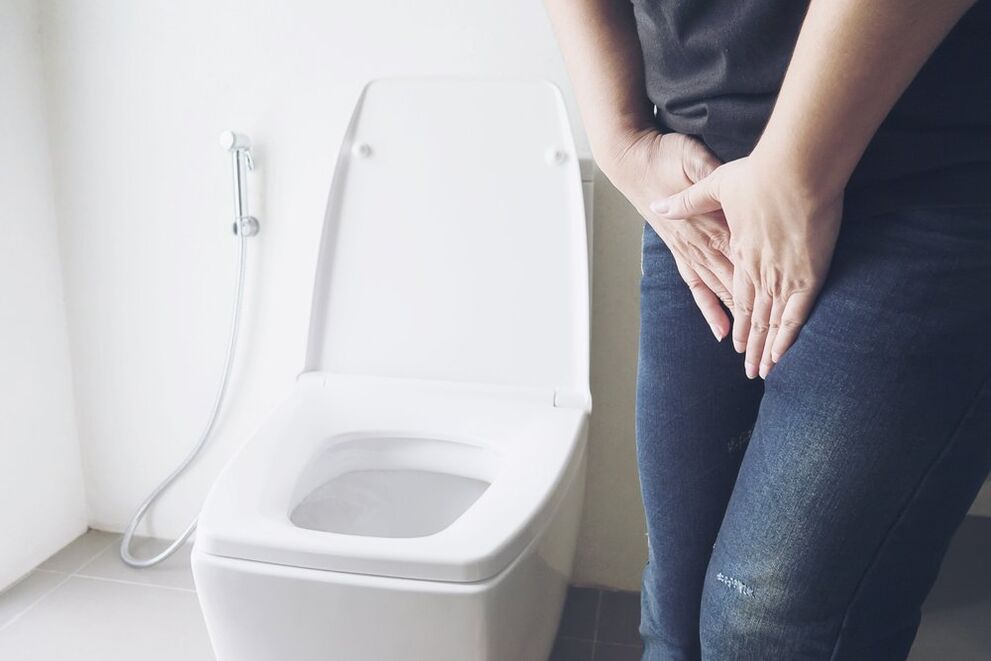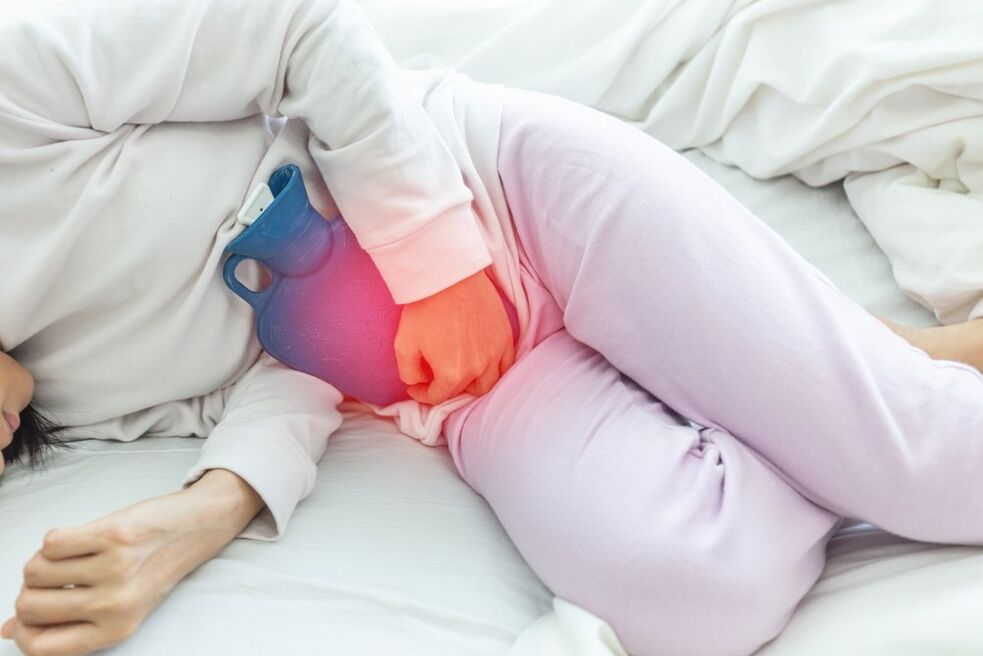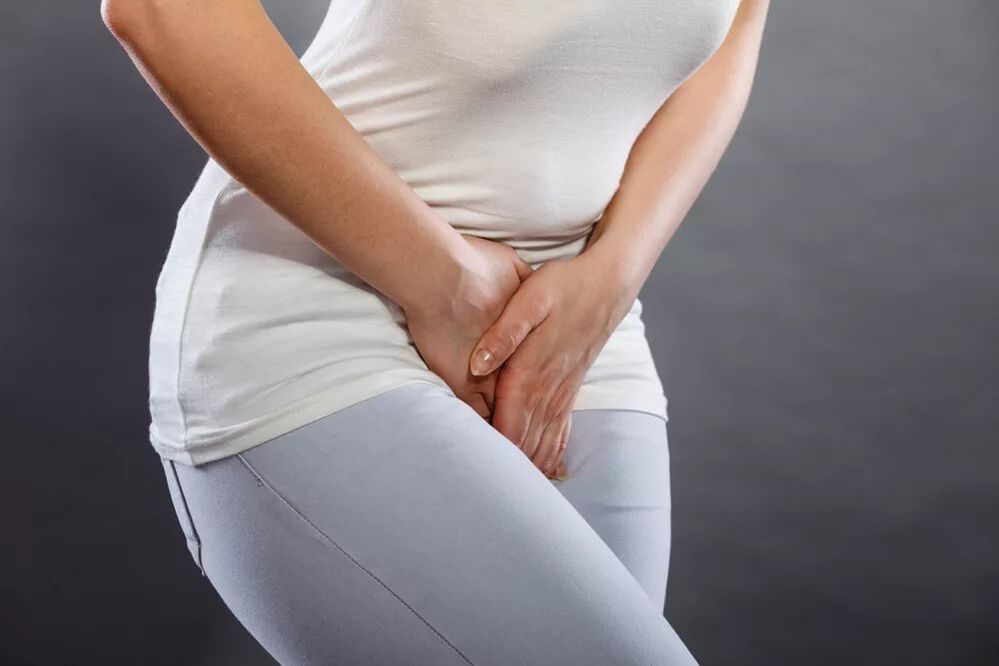
According to statistics, cystitis is much more common in women than in men, which is explained by physiological differences in the structure of the urethra. This disease is often accompanied by a series of unpleasant symptoms: painful urination, frequent urination, pain in the lower abdomen.
Cystitis is a common disease of the urinary system. It is largely due to the peculiarities of the anatomical structure, which is why cystitis is much more common in women than in men.
What are the first signs and causes of cystitis in women? What are the main symptoms of cystitis in women? What types of cystitis are isolated? Which doctor treats cystitis and how to treat it at home? Is it possible to prevent the development of cystitis, and what needs to be done for this?
Cystitis in women: Is it necessary to make an appointment with the doctor?

Cystitis in women can be caused by various infectious diseases, invading helminths, bladder stones, the onset of menopause, endocrine system disorders and taking certain medications. In addition, there is interstitial cystitis, the exact mechanism of which has not been elucidated.
It is also important to note that cystitis in women can be acute or chronic. The chronic form is characterized by both frequent recurrences of the disease and a slow, incessant presentation of symptoms.
To prevent the disease from becoming a constant source of discomfort, it is necessary to make an appointment with a doctor at the first sign of the disease and to take the necessary measures. All you need to do is call the records clinic. The specialists who deal with this are urologists and gynecologists. Although, even a general practitioner can treat an uncomplicated form of the disease.
To diagnose cystitis in women, they usually do a urinalysis, smears from the urethra and vagina. In the chronic form of the disease, you should also see a doctor to see if there is a possibility of sexually transmitted diseases (STDs).
Also, in some cases where further examination is required, you will need to make an appointment with a nephrologist, a small pelvic ultrasound, or a cystoscopy.
The dark side of this disease is that the treatment of cystitis is usually quite easy and the uncomfortable symptoms go away quickly. Therefore, many women prefer to self-medicate by buying advertised antibacterial drugs in pharmacies.
However, the lack of appropriate therapy, short duration and wrong drug selection will contribute to the disease turning into a chronic form, from which it is difficult to treat. Therefore, you should not take risks and use the advice of your friends in choosing a drug - it is better to call your doctor by phone and make an appointment. It should be remembered that prompt treatment will not only avoid chronic cystitis, but also save other organs from the spread of infection.
What symptom of cystitis is the most bothersome?
Signs of acute cystitis in women always appear suddenly. Including:
- often and forcefully to urinate;
- an increase in the content of leukocytes in the urine and a change in its smell;
- the presence of traces of blood in the urine;
- relieve pain in the lower abdomen;
- burning and pain when urinating;
- increase body temperature.
These symptoms develop very quickly. About every quarter hour, a woman has to go to the bathroom, and the amount of urine per urination is minimal. In addition, bladder muscle spasms can lead to urinary incontinence.
Cystitis tends to recur. Most women seek help at least once a year.
In the chronic form of the disease, the symptoms are less obvious. For example, discomfort while urinating is fairly moderate. The frequency of going to the toilet did not change. In general, a person can live a normal life and engage in work (study).
Methods of prevention and treatment of cystitis

To learn about more equal sex ways to prevent and treat cystitis, it's important to identify the main causes. Including:
- structural features of the urethra in women (it is shorter and wider than in men);
- hormonal fluctuations (pregnancy, menopause), upsetting the balance of the microflora and weakening the strength of local immunity;
- urinary tract infections (may occur due to inadequate personal hygiene, unprotected intercourse);
- trauma (eg, when using a urinary catheter to divert urine).
Cystitis can also occur as a comorbidity with diabetes mellitus or urolithiasis. By the way, it is impossible to "earn" this disease from hypothermia. And similar symptoms signal the development of polyuria (cold diuresis).
Therefore, the first thing to do when facing cystitis is to dial the clinic's phone number and book an appointment with the doctor. Only an experienced specialist, based on tests, can determine the presence of an inflammatory process and prescribe the correct antibiotic therapy. It will relieve most of the unpleasant symptoms in the first few days.
In addition, the treatment of cystitis includes taking pain relievers and antipyretics. Doctors recommend that during treatment, you should adhere to a regimen of drinking enough water, this will help speed up recovery (bacteria will quickly be washed out of the body with urine).
Experts tirelessly warn that it is very dangerous to self-treat this disease. Indeed, many diseases of the genitourinary system, with symptoms similar to bacterial cystitis, cannot be cured with an antibiotic. As a result, you could lose valuable time and face a serious threat to your health.
Measures to prevent this disease are:
- personal hygiene (daily change of underwear, frequent change of pads as well as frequent bathing);
- wear properly selected underwear made from natural materials;
- timely treatment of all existing diseases of the genitourinary system;
- forced to go to the toilet and shower after sex.
If a bout is caught on the road or on vacation, before seeking medical help you should try to avoid hypothermia, drink more fluids, limit your intake of spicy and salty foods, as well as alcohol.
If you have chronic cystitis, it's a good idea to visit your doctor before going on a long trip and discuss with your doctor what medications you should take with you when you travel. And also get (if possible) his phone number for emergency contact.


























